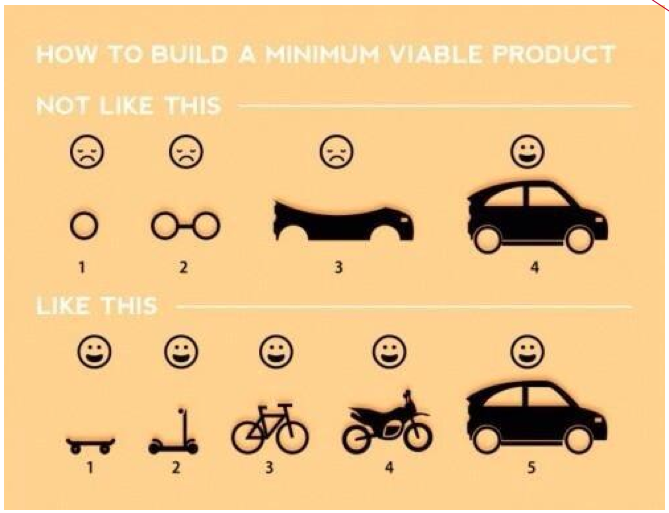If there is one trend that did change the shape of the entrepreneurial ecosystem these last few years it has been the lean start-up movement. The concept is straightforward: It’s the philosophy that you should validate your initial ideas (assumptions) with real-life data before you invest more time and money in your project.
The premise of the lean start-up is that there is a high probability that the first iteration or implementation of your idea will often be wrong – and that’s OK. As business plans fresh from the printer are ‘useless’, so there is no initial product / solution that can survive first interactions with its customers. The longer you delay the launch, the more you delay getting real answers from the market.
But this generates a follow-up question… I am often asked by entrepreneurs: when should I launch? That is a very difficult question, because you have to answer it with another question: What is the risk you are facing if the solution you bring to market is not ready?
Drew Houston (CEO and founder of Dropbox) commented the following when asked this same question: “There is a spectrum of well-informed opinions about when to launch your product. At one end, Paul Graham tell entrepreneurs; “launch early and often” to accelerate learning. At the other end (respected software guru) Joel Spolsky says: Launch when your product doesn’t completely suck”. In our case, we are managing peoples’ files, and it’s a big deal if you lose or ruin them. That meant working at Spolsky’s end of the spectrum and keeping our beta test small.
In other words, if you are working on a geo localized mobile dating app(what an innovation!); the risk is quite low…what’ the worst that can happen if you come across bugs and failures in the service? People won’t be happy with the app – so what? You simply apologize – it’s not as if you have done anything Illegal or dangerous. You now know the needs of your users better and you can work on improving your solution.
On the other hand, if you are building a private submarine, the risk is of course a lot higher if the product is not perfect…
So, when it comes to official launch, use the following checklist:
- Evaluate risks associated with not being able to deliver the minimum value you are promising
- What do you already know? What is it you still need to discover related to market and value proposition? Is that critical NOW?
- What are the features you can forego for initial launch? Are they critical?
- Will I really add value with this version of the Minimum Viable Product(MVP)? (see infographic)

But do not forget:
- Early adopters tend to be quite tolerant… do not overestimate the value of their feedback: your next challenge is crossing the chasm.
My next post will cover the challenges of building the right team at the right time to optimize the launch…